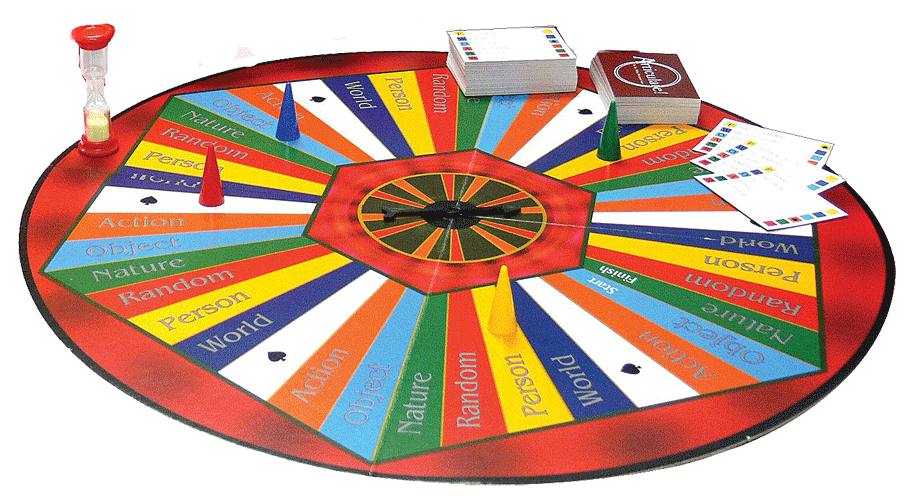
This word, or wordy, game has been around since about 1992: nearly as long as grandma.
The name captures the core action of the game beautifully. Playing in teams, players take turns to draw cards out of a box, each showing six target words or names. They cover such things as nature, actions and behaviours that people ‘do’, and famous people – to which the frequent reaction is “who on earth is she?” 🤷♀️
The target topic is determined by the section of the playing board that their marker piece is at present standing on, so nobody’s allowed to choose their favourite topic area: no, not football, grandad!
There’s just one person who draws the cards out, and they are the team’s clue giver for that turn: their colleagues have to deduce the target. (Some just wildly guess.) If there are several team members on the hunt, they can suggest their answer whenever they want, so it’s best to be ready for a lot of hardly quiet activity!
The clue giver’s task can range from awfully easy through to horrendously hard, because they have to create a descriptive clue that will enable their team to guess what word(s) show on the card. Consider, for example, which you’d find easier: ant or axolotl.
They must do this without using such give-away clues as ‘sounds like’ or ‘begins with A, has four syllables, and is the name of a game’. 😁
They are allowed to mime or gesticulate, but not to indicate or look at anything: so, no pointing at the axolotl. There are a couple of other little rules they must obey.
With each correct guess in their allotted time, the clue giver takes another card and bludgeons their brain into creating another clue. Thus do they proceed for that turn, until they either run out of time or expire.

The team’s marker moves around the circular board by as many steps as there were correct guesses, and the place they land will determine their next clue giver’s topic area. The board also occasionally throws up special actions, like being able to leap ahead a space or two, or throwing a clue open to all and sundry, rather to the team alone.
There have been modifications and versions especially for kids, all of which you can see on Drummond Park’s website.
- you have to think on your feet
- no skill or strategy
- competitive, but not combative
- luck: nobody knows what targets will come out for clue givers
- massages the brain cells
- plays well in party mood
- the jury is still out on the question of whether it’s best played after either one, or three glasses of wine.
► Let me Articulate!
